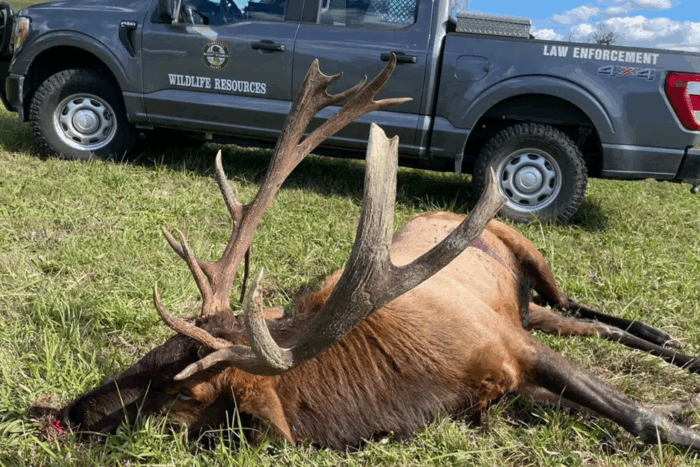The Boone & Crockett Club makes it clear that hunting and poaching are not the same. Ethical hunters follow regulations. Poachers steal from the public. The club’s Poach & Pay program sets out to change the way people view and punish wildlife crime.
Poaching also carries real costs. It undermines wildlife management, reduces conservation funding, and erodes public trust. Despite this, penalties remain inconsistent across states. Many fines fail to reflect the actual loss. Courts often treat poaching as a minor offense.
Poach & Pay also responds to penalties that don’t match the harm caused by illegal take. Across the United States, fines and restitution vary widely. Many courts dismiss cases or issue penalties too small to deter offenders. The Boone & Crockett Club’s program seeks to close those gaps with research, education, and legislation.
What the Program Is Designed to Do
Poach & Pay is a multiphase initiative that applies criminology and conservation science to wildlife crime. It’s designed to measure the true cost of poaching, reveal how often crimes go undetected, and recommend stronger deterrents.
The program develops model legislation for states, promotes judicial education, and builds outreach campaigns that clearly separate hunters from poachers.
Phase I: Restitution Under the Microscope
Phase I began in 2016 and focused on how states handle restitution for illegally taken big game. Researchers reviewed all 50 states and found that 42 had restitution systems. They also found wide variation in how penalties were calculated and enforced.
Kentucky served as a detailed case study. Detected wildlife crimes in the state cost about $1.1 million annually, with 80% tied to poaching. Yet the state recovered only about 12.5% of those costs. Researchers also estimated detection rates as low as 0.67-3.33%. At a 2% detection rate, Kentucky’s real annual cost of poaching could be as high as $43 million.
Phase I also revealed inconsistent use of scoring systems for trophy restitution. Eight different systems were in use. Some states relied on Boone & Crockett’s system, while others did not. The research concluded that restitution programs only worked when judges supported them in court.
Phase II: Exposing the Dark Figure of Crime
The program entered Phase II in 2021. This stage focused on the “dark figure” of wildlife crime, the large number of cases that go unreported or undetected.
Researchers surveyed more than 80,000 hunters and landowners and over 1,000 conservation officers across eight states. Respondents agreed that poaching is a serious problem. Many believed that more than half of crimes go unreported. The survey also shed light on who poaches, why they do it, and how they avoid detection.
These findings add to the fiscal data from Phase I, showing that the scope of poaching is much greater than what official records reflect. They also provide agencies with insight into where enforcement and education can be improved.
The Final Report and What Comes Next
On September 9, 2025, Boone & Crockett released a comprehensive report in Washington, D.C. The report summarizes 5 years of Poach & Pay research. It presents detection rates, offender profiles, and financial impacts. It also recommends legislative templates and judicial outreach strategies.
The program’s next steps include working with lawmakers to adopt consistent restitution laws, expanding judicial education, and running public campaigns that reinforce the difference between hunters and poachers.
Partners and Support
The Wildlife Management Institute is a core partner in the program. Funding has come from the Bass Pro Shops and Cabela’s Outdoor Fund, Leupold & Stevens, Federal Ammunition, and Safari Club International. International Wildlife Crimestoppers also supports outreach. A Multistate Conservation Grant helped expand both research and communications.
These partnerships provide resources, expertise, and reach. They also help ensure that the program’s recommendations are adopted beyond research circles.
Why It Matters
Poaching robs the public of wildlife, undermines management, and skews data. It drains conservation funding and damages the reputation of hunters who follow the law. The Boone & Crockett Club’s Poach & Pay program confronts these problems with research and policy tools.
By measuring the true cost of poaching and pushing for consistent penalties, the program seeks to remove the low-risk, high-reward equation that fuels wildlife crime. It also works to protect the credibility of hunters and the future of fair-chase hunting.
Read the full article here




